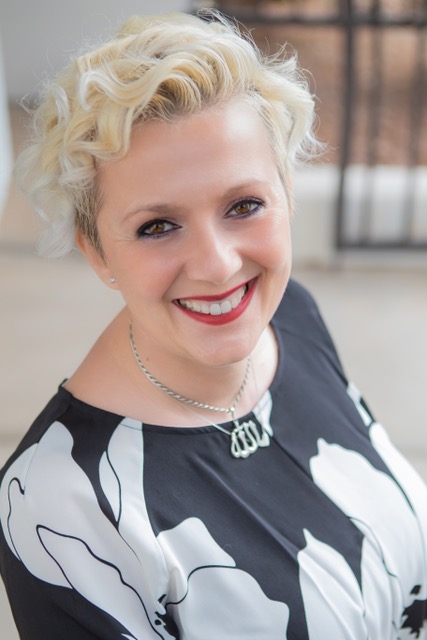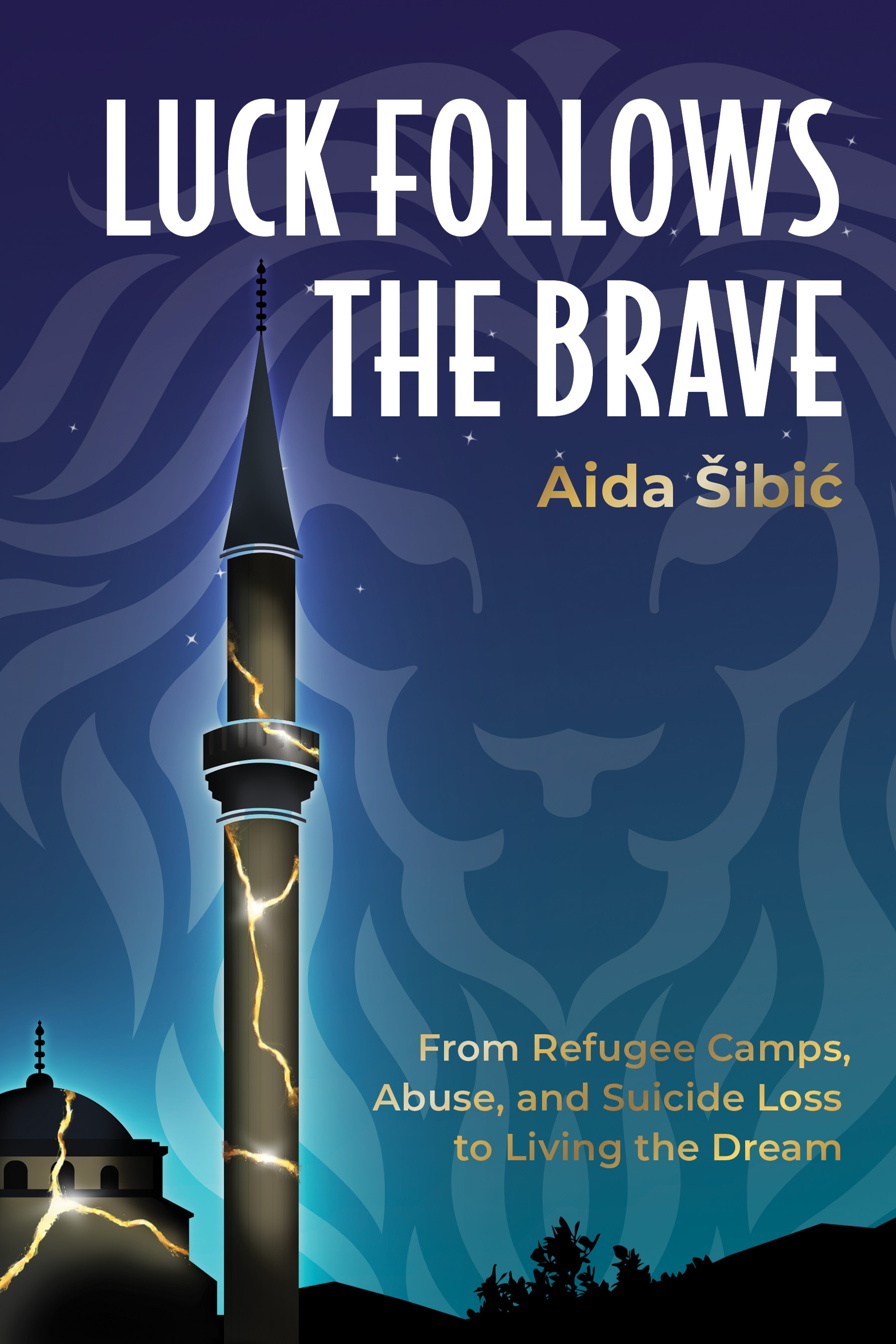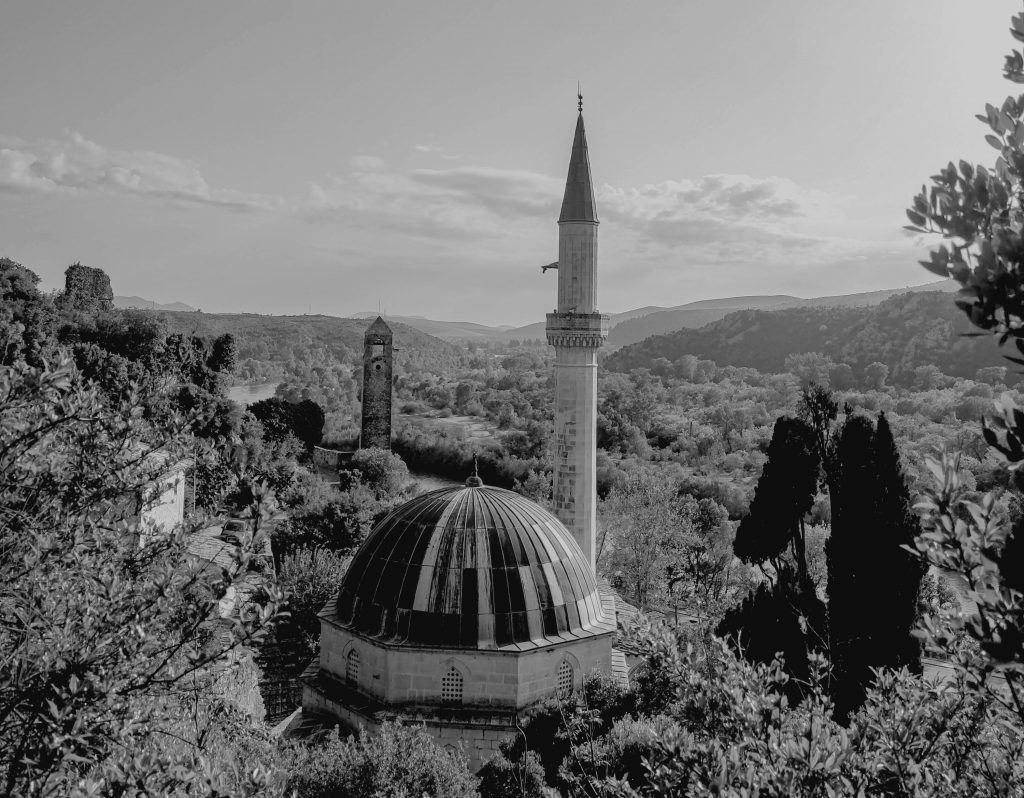
The NAU Review recently sat down with Sibic to talk about her book, surviving war and the trauma that followed. Read our questions and her answers below.
Tell us about your childhood.
I am the oldest of two kids, and my younger sister, Azra, and I were always really close. We were your ordinary kids. We were well-behaved, had good grades and sometimes got into a little bit of mischief. We were born in Banja Luka, Bosnia and Herzegovina, a small country on the Balkan peninsula in southeastern Europe. Bosnia was one of six republics in Yugoslavia. The five others were Slovenia, Croatia, Serbia, Montenegro and Macedonia. Bosnia is one of those rare countries in the world where one can stand at an intersection and see a mosque on one corner, a Catholic church on another and an Orthodox church on yet another. At a certain time of day, the sounds of azan—the Islamic call to prayer—and church bells are married in perfect harmony. I grew up in that harmony, maybe even took it for granted, like many of us who grew up there. It’s just the way things were.
In the early ‘90s, I was just another kid filled with hopes and dreams, about to graduate from middle school. I took enrolling into my local high school and attending college in Banja Luka as my birthright. I watched older kids from my neighborhood grow up and move out of their parents’ homes, with most of them staying in Banja Luka and visiting their parents frequently. I assumed I would, too.
Like many of my childhood friends, I dreamed about becoming a doctor—one who delivers babies, to be precise. I always believed there was something magical in witnessing new life come into this world. Being part of new parents’ joy and happiness was my dream job.
As a young kid, I had my whole life planned out. But life doesn’t always go the way we plan it, and it sometimes takes us down some pretty twisted turns.
What was it like to experience genocide? What residual effects did it have on you and your family? What was it like to start a new life?
It was harrowing. We went from an almost idyllic-type of life to living in fear, trying to survive from one day to the next. There are a number of passages throughout my book where I described specific situations that my family faced throughout the ’90s. From experiencing food shortages and having electricity and running water cut off to homes, to witnessing some of the most ferocious atrocities human beings are capable of doing to one another, we’ve witnessed most of it. The aggression on Bosnia raged on from 1992 to late 1995. My family and I fled the country in January of 1995.
The trauma of surviving and escaping the genocide in Bosnia and Herzegovina left most everyone I know from that part of the world with some sort of PTSD. Our extended family, friends we grew up with, were displaced all over the world. At the same time, we were starting a new life as refugees in the United States, with very little English, trying to immerse ourselves into a new culture. My parents began working low-paying jobs while learning to speak English to put my sister and me through school.
What brought you to NAU?
I graduated from West Valley College in Saratoga, California, with an associate’s degree in computer science in 2000. That same year, I was accepted to San Jose State University to continue my education, but I started working full-time, had kids shortly after and put my dreams of pursuing higher education on hold. I always regretted not having a higher degree, but after I had my kids, and after I became a single mom, I did not have the time or money to go back to school. Now that my kids are teenagers, I am returning to school. The online program makes it convenient to study at my own pace, in the evenings and on the weekends, while still working full-time.
Tell us about your book.
Here’s a book description from Amazon:

But Aida’s personal dreams—a happy family, a loving husband—often feel out of reach. In the U.S., she laughs again, experiences romance, and travels. With war seemingly behind, Aida recounts the long-term effects trauma left on her family. As a domestic and emotional abuse survivor, Aida fights to provide safety and stability for her two children. She writes about the tragic loss of a close family member to suicide, sharing vital information about suicide prevention and helping other survivors feel less alone.
Aida’s story demonstrates Bosnian “Inat,” a term for stubborn and determined desire to persevere despite all obstacles. Ultimately, she lifts up her family, celebrates her Islamic heritage, and lives a life of strength and joy. Readers will be amazed by this profound, heartwarming portrait of courage. If you like inspirational stories of strong women, Luck Follows the Brave tells a triumphant story of surviving and thriving amid extreme adversity.”
Why did you feel it was important to share your story?
As a result of challenges in my own life, I’m involved in different volunteering activities and seek opportunities to serve others. For example, I helped clean and remodel a veteran’s home forHouse of Heroes and was a guest speaker for Children’s First Academy on the importance of education. I also led a team of volunteers to organize a toy warehouse for W. Steven Martin 911 Toy Drive and have served meals to the homeless at St. Vincent De Paul.
Luck Follows the Brave is another act of service. I wrote it for two main reasons: (1) to seek truth and justice for the victims of genocide in Bosnia, ensuring their story is not forgotten; (2) to help remove the stigma surrounding mental health and death by suicide. Specifically, this book seeks to normalize the topic of mental health awareness and suicide prevention. By telling my family’s story, I hope others who have lost loved ones in this manner will feel less alone. I also want to encourage readers to learn and recognize the early warning signs of suicide, helping to prevent others from experiencing such grief.
What message do you have for people who have experienced trauma, have been affected by suicide or who battle suicidal thoughts?
With this book, my goal is to raise awareness and remove any stigma surrounding the topics of mental health and suicide prevention. Suicide has been rapidly increasing in the United States in recent years and has become one of the leading causes of death among young adults. Unfortunately, however, there is still very little discussion about this subject because mental health and death by suicide is still a very taboo topic. That needs to change.
Being able to have an open and honest discussion about mental health—without prejudice or judgement—would greatly help those who are suffering from severe depression feel much safer in reaching out for help. To those who are struggling, my message is this: You are not alone! Your life matters! Please reach out for help.
In addition, treating mental health conditions with the same urgency as any other life-threatening health condition is of vital importance, yet very limited resources and support are available to patients and their families. My book attempts to shed light on what the warning signs are when someone is experiencing severe depression and suicidal thoughts. I hope my book serves to educate and enlighten others so that meaningful changes can be affected in the United States and around the world.



